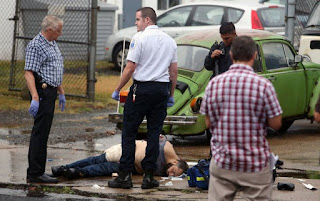Every passing year is to be thankful for and the year 2016 is particularly thankworthy for a number of reasons.

https://angelachonglaikun.blogspot.com/search?updated-max=2016-06-16T01:33:00-07:00&max-results=7
On top of the list is my
active participation in a variety of activities in celebration of the Holy Year
of Mercy, which has just drawn to an end. There were spiritual retreats, Bible
reading gatherings, choir singing in concerts, pilgrimages to the local
churches, the Opening and Closing of the Holy Door, to name just a few. Even
our Sunday school curriculum included acts of charity in association with the
theme of the Jubilee Year. In fact, each and every one of the activities was an
encounter with the mercy of our Heavenly Father. The most memorable was undoubtedly
the pilgrimage to the Holy Land in April. The visits to the places of Jesus’
birth, his baptism, his ministry work and finally his crucifixion have
impressed me so greatly that the scenes still remain vivid on my mind, helping
me to get more inspired than ever before when doing Bible reading.
In addition, I feel
myself more enriched spiritually by attending a few courses. “Bible in 80 Weeks’,
which began in June, 2015, drew to its close shortly before the Holy Land
pilgrimage. We did not feel the loss for long, though, as another Bible course
was soon launched in September, keeping us engaged and motivated for ten weeks in
St. Paul’s prison letters. I took great delight not only in the input of the
speakers but also in sharing with the group members. I would not have got so
much enlightened if I had done only solitary reading.

https://angelachonglaikun.blogspot.com/2016/12/inspirations-from-course-on-catholic.html
But I feel most gratified for having enrolled in the course on “Catholic Social Teaching”. As implied in the name of the textbook used, it was a treasure to be explored, then discovered and finally kept for life. It has brought to light what I used to be ignorant of. I now understand that as a citizen as well as a child of God, I have my commitment to social justice. I also understand better what is meant by “loving God and our neighbours” and ‘building the kingdom of God on earth’. In fact, not only has the course enhanced my sense of belonging to the church, it has made me more emotionally attached to my Christian belief.

https://angelachonglaikun.blogspot.com/2016/12/inspirations-from-course-on-catholic.html
But I feel most gratified for having enrolled in the course on “Catholic Social Teaching”. As implied in the name of the textbook used, it was a treasure to be explored, then discovered and finally kept for life. It has brought to light what I used to be ignorant of. I now understand that as a citizen as well as a child of God, I have my commitment to social justice. I also understand better what is meant by “loving God and our neighbours” and ‘building the kingdom of God on earth’. In fact, not only has the course enhanced my sense of belonging to the church, it has made me more emotionally attached to my Christian belief.
Honestly, there have
been moments when I doubted God’s presence. I did question God why he had
allowed my sister to suffer from a disease terrible beyond words. I even asked
why God had created mankind at all. Yes, those had been the moments when my
faith was challenged. But it was also during her bitter days, months and years
that I witnessed God’s mercy. Initially, she may have blamed God for the
miserable state she was in. But over time we saw her gradually pacified with
strengthened faith. God had blessed her with patience, courage and perseverance
to endure the prolonged ordeal. Though deprived of her speech ability, she
prayed with her husband peacefully with her eyes closed every morning. Besides
us family members, she would only permit the priests, pastors and nuns to visit
her, showing her eagerness to have contact with God through their help. Besides,
she also had the fortune of being looked after by kind and caring medical
staff. And on the night when she passed away, there was peace on her face, the
kind of peace we had not seen for years. We were sad at the loss … we still
are. But we do not have the least doubt that she’s now enjoying eternal peace
in God’s embrace. From her, I have learned how to be submissive to God’s will with
the entire trust in Him.

https://www.youtube.com/watch?v=1s56n9T4FzM
My involvement in a
documentary film, which was a review of my life as a teacher, was another
experience of closeness to God. I am thankful to the producer for including my
spiritual life in the documentary. Listening to the interviewed teachers and
students sharing about my past, I could not but think of God. Without His support
and encouragement throughout all those long years of my teaching career, I
could not have overcome the numerous hurdles and challenges all the way along
and got my commitments implemented with satisfaction. I still view the
documentary every now and then. While relishing the sweet fruits of my efforts,
I also remind myself to count my blessings. God has shown caring concern for my
passion for language. If it was under God’s guidance that I took up language
teaching decades ago, it must have been his arrangement that my freelance work
since my retirement is also language-related.
The past year has been
an eventful one. Whether it will be remembered more for the happy achievements
or the sad losses, one thing is for sure: I will always look back upon it with
gratitude for God’s mercy and with determination to seek spiritual enlightenment
and enrichment through greater involvement in the service of God.



















